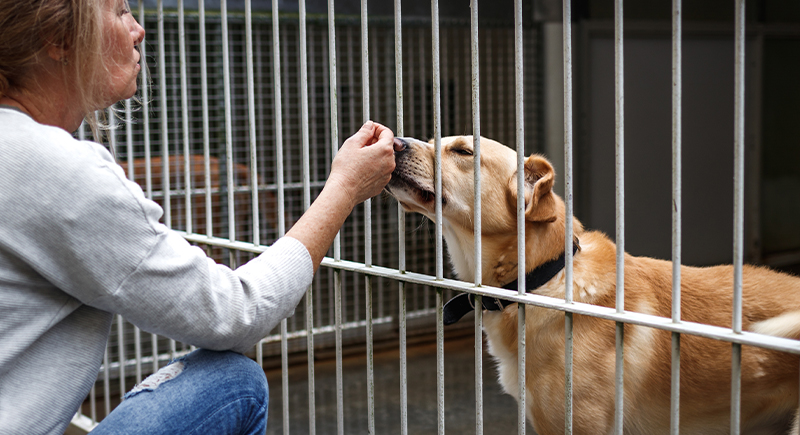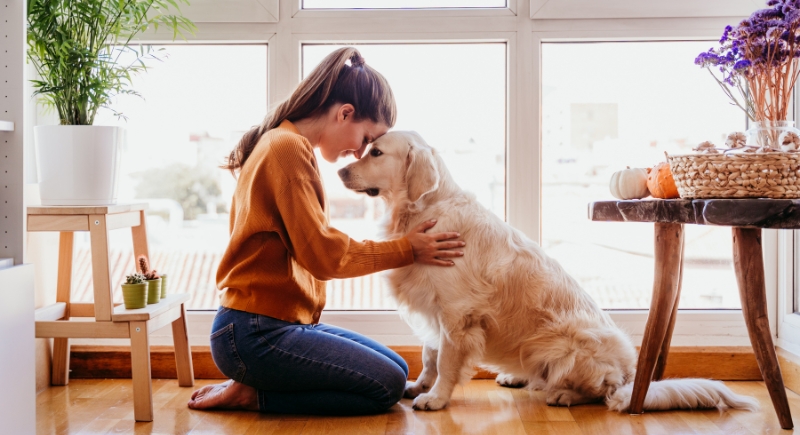12 Most Important Questions to Ask Yourself Before You Bring a Dog Home
Getting a dog seems both simple and exciting at first: choose a breed, bring them home, adjust your routine. But the reality involves greater planning, responsibility, and long-term commitment than most people expect. Dogs depend on their humans for nearly everything: care, structure, emotional support, and lifelong stability. That eventually affects how you live, spend, and plan your future.
So, before you move forward, take the time to ask yourself these questions honestly.
Do I Have Enough Time Every Single Day?

Credit: Canva
Some routines look manageable on paper until you’re living them. Feeding, walking, and training aren’t once-in-a-while tasks. Rather, you need to perform them daily, and sometimes, they can be time-sensitive. Most dogs also struggle when left alone for long hours.
Can I Consistently Plan My Life Around Their Needs?

Credit: Getty Images
You’ll need to plan your day around bathroom breaks, walks, meals, and rest. And this kind of routine will last for years. Many people enjoy the system, but others feel boxed in quickly. You won’t always have the freedom to leave town last minute or stay out all night.
Do I Have Enough Patience to Manage Setbacks?

Credit: Getty Images
Accidents on the rug, chewed shoes, and barking at nothing aren’t rare situations when you have a dog. They’re normal, especially during early months or stressful transitions. Reacting calmly helps, but only if you know what to expect. Training rarely happens in a straight line, and regressions are common, particularly after changes in schedule.
Am I Prepared to Meet All Their Needs, Not Just Some?

Credit: Getty Images
Under many animal welfare laws, it’s a legal obligation to meet a dog’s physical and emotional needs every day. That includes proper food, a clean living environment, space to move, time for socialization, and medical care. Neglecting enrichment, companionship, or hygiene can be considered an offense.
Can I Make This Commitment for the Long Haul?

Credit: Getty Images
A lot of dogs remain part of the family for 10 to 15 years. In some cases, they live even longer. This decision adds an ongoing commitment to your everyday life. Future plans, such as housing, career changes, or family dynamics, could affect your ability to provide care. Constant instability makes consistent support harder to maintain.
Is My Budget Enough to Handle All Costs?

Credit: Getty Images
The initial adoption fee or breeder price is only the beginning. Ongoing expenses like food, medical care, grooming, and emergency treatment can climb quickly. Without planning, unexpected vet bills may force rushed decisions and delayed treatment. Some owners underestimate costs like leashes, treats, or boarding fees and fall behind.
Why Am I Thinking About Getting a Dog Now?

Credit: iStockphoto
Motivation affects every part of ownership. Wanting companionship makes sense, but impulse decisions can lead to mismatches. If you’re responding to boredom, stress, or emotional burnout, those feelings won’t disappear just because a pet arrives. They might actually become harder to manage.
Could Another Kind of Pet Fit Better Right Now?

Credit: iStockphoto
Breeds like border collies, huskies, and German shepherds require time and ongoing mental and physical engagement. People who prefer less disruption or have limited flexibility may find smaller or lower-maintenance pets more suitable. Choosing a companion based on current capacity sets both the owner and the animal up for a successful relationship.
Do All Members of My Household Support This Decision?

Credit: pixelshot
Even one unsure person at home can create long-term issues. A shared commitment prevents misunderstandings and conflict. If someone in your household feels uneasy around dogs or dislikes cleaning, that affects daily life. Allergies and noise sensitivity matter too. Kids usually need supervision with pets, mostly in the beginning.
How Will My Current Pets React to a New Dog?

Credit: Getty Images
Cats, small animals, and other dogs can feel unsettled or stressed when other canines settle into their territory. Introductions must happen slowly, with space to adjust. Fights, resource guarding, or anxiety mostly show up in the first weeks alone. Make sure to think carefully about what support you have if things don’t go smoothly.
Does My Living Space Support This Kind of Responsibility?

Credit: Canva
Apartment dwellers may face challenges that make dog ownership harder. These can include limited outdoor access and strict pet rules. Some breeds struggle in small spaces or react poorly to the sounds and activity of shared buildings. Regular bathroom breaks may also become complicated without a yard or nearby green space.
Can I Accept the Disruption Dogs Bring?

Credit: pixelshot
There’s no shame in valuing order, but bringing a dog home often disrupts the order people work hard to maintain. Muddy floors, chewed items, barking, and accidents are common initially. Anyone who thrives on predictability or minimal cleanup should consider how much flexibility they can allow.
Do I Understand the Basics of Canine Behavior and Care?

Credit: iStockphoto
More often than not, these four-legged companions don’t act out of malice, but misreading cues can cause problems. For example, a wagging tail can sometimes signal tension. Knowing basic body language, proper training methods, and common breed traits reduces misunderstandings.
Would It Make Sense to Foster Before Adopting?

Credit: Canva
Fostering offers short-term care without an obligation. It lets you test your schedule, space, and energy level with real experience. You’ll gain insight into what works and what doesn’t, without committing to a specific dog. Various people foster once and feel ready to adopt, while others realize the timing isn’t right.
Do I Trust the Source of the Dog I’m Considering?

Credit: Canva
Where the dog comes from affects their health, attitude, and future needs. Reputable rescues and breeders share medical records, behavioral history, and allow time for questions. Poor conditions early in life can lead to lasting fear, stress, or health issues. If a seller pressures you, avoids details, or won’t allow visits, take that seriously.